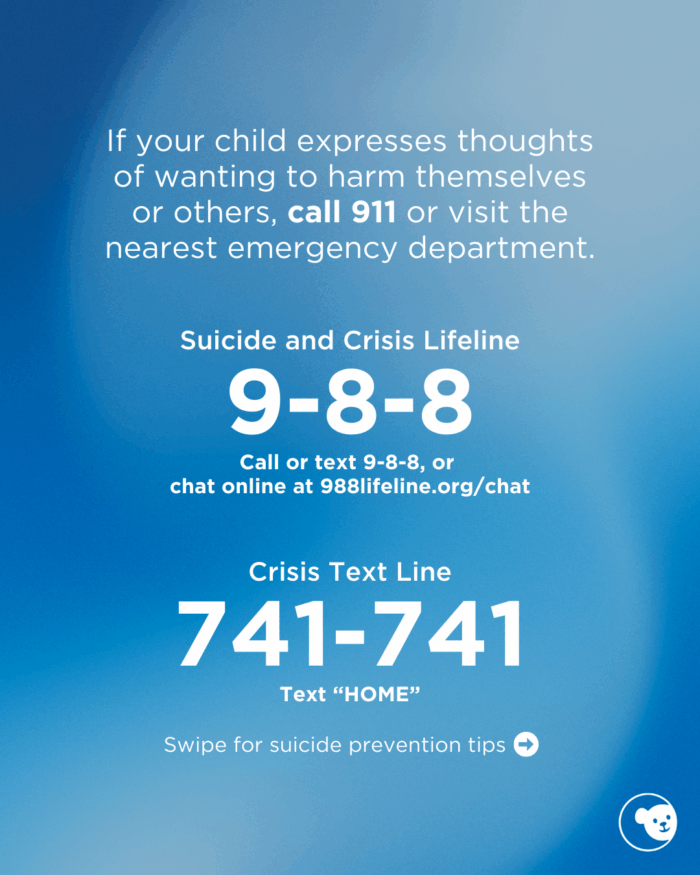When should I seek professional help for my child?
Everyone experiences distress from time to time. Children and teenagers can go through spells where they seem very upset. However, people who struggle with a mental health disorder tend to experience distress more regularly and more strongly. When should you think about going to a professional for guidance? Below are a few characteristics that can help in figuring out the extent of your child/adolescent’s distress. Always seek immediate help if a child engages in unsafe behavior or talks about wanting to hurt him or herself or someone else.
Typical Distress
The upsetting symptoms should last a few hours or a few days.
- After a breakup your adolescent cries for a few days
- Complaining of a stomachache after eating too much ice cream
- Has a temper tantrum when they are tired
Persistent distress that may require professional guidance
The upsetting symptoms should last a few hours or a few days.
- Crying regularly without knowing why
- Complaining about frequent stomach aches or headaches with no known medical cause that keeps them from attending school
- Has frequent tantrums or are intensely irritable much of the time
- If your child is (consistently) not meeting the milestones for his or her age or you feel there could be a problem with their development
Typical Distress
Difficulties take place in one setting (school, home, friends, community).
- Before a test/presentation you get the feeling of butterflies in your stomach (school)
- Misbehaves at home but follows the rules at school
Pervasive distress that may require professional guidance
Difficulties take place in more than one setting (school, home, friends, community).
- After a “poor” grade on exam, feeling worthless or hopeless all the time (school, home, friends) and not engaging in regular activities
- Doesn’t like to eat at parties and at school for fear of gaining weight
- Throws severe tantrums at home and at preschool
Typical Distress
Generally, your child is doing well across most settings (such as school, friends, family relationships, work).
- Feels betrayed by a friend; however, continues to hang out with the family, school performance stays the same
- Is usually a good student but experienced a recent decline in grades due to a change in teachers
- Has a few friends in the neighborhood and one friend at school but hangs out with family
Distress that interferes with normal functioning and may require professional guidance
Symptoms get in the way of everyday life (such as school, friends, family relationships, work).
- Is spending more and more time alone, and avoid social activities with friends or family
- Has lost interest in activities that they used to enjoy doing
- Is not interested in playing with other children or has difficulty making friends
- Is experimenting/engaging in alcohol or drug use and is not engaged with family/friends or shows a decrease in school or job achievement
Crisis Resources
If your child expresses thoughts of wanting to harm themselves or others, call 9-1-1 or visit the nearest emergency department.
988 Suicide and Crisis Lifeline:
Call 9-8-8
Text any message to 9-8-8
Chat online at 988lifeline.org/chat
Crisis Text Line:
Text “HOME” to 741741
Save for later
Download, print or share on social media.

Learn more about CHOC’s pediatric mental health services
At CHOC, we specialize in providing a full spectrum of pediatric mental healthcare, including inpatient, intensive outpatient and outpatient program services.




